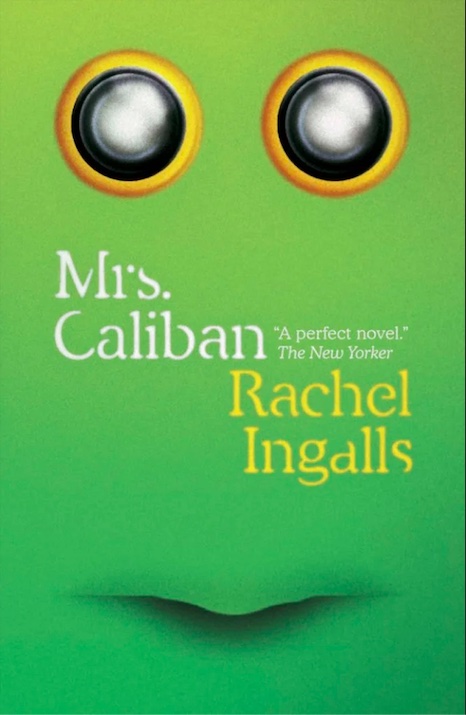When I first read Rachel Ingalls’ Mrs. Caliban this semester in Professor Butcher’s Narratives 2: Longer Forms, I was perplexed as to how the story could have any literary significance. At face value, this is the story of a lonely housewife, Dorothy, in an unhappy marriage who falls in love with a monstrous frog-like man–a clear allusion to the aquatic creature Caliban from Shakespeare’s The Tempest. Playful Shakespeare allusions aside, though, it seemed to be just another cheesy romance novel with a strange twist. However, the further I read, the more I began to understand that this was actually the story of a woman gaining her independence and questioning social norms.
This story, published originally in 1982, this story revolutionarily challenged cultural norms by portraying a woman wholely unsatisfied by her role as a housewife, a position in which women were taught to be complacent. At the beginning of the story, Dorothy is trapped in a generally unhappy marriage with her husband Fred with whom she has suffered the loss of a child and dog. Their tragic past together has caused the two to become complacent in their monotonous lives, without the romantic love that was once present in their relationship. Dorothy spends all of her days caring for the house, as she feels that this is what’s expected of her, without addressing how unhappy she is with her situation.
Her life changes when an avocado-loving escaped frog-like man who calls himself Larry shows up at her house. Public officials have warned that Larry is dangerous, but Dorothy immediately finds sympathy for him and takes him under her care. Finally having a companion who cares about her, the two quickly develop a romantic relationship, much like the marital relationship that Dorothy is missing from her husband. The more they spend time together, the more questions Larry has about cultural practices and Dorothy’s role as a woman in society because his homeland was very different. This new relationship with Larry helps her break out of the monotony of her former life and recognize the social expectations that have limited her in the past.
While this story is likely shocking due to this cross-species relationship, Ingalls uses the tale to make commentary on society and women; themes which become even more complicated if Larry is meant to suggest a racial or ethnic “other.” By the end, Dorothy has become a far more independent woman who worries less about how she is perceived than she does about standing up for herself. At only 111 pages, Mrs. Caliban is well worth the quick read.

